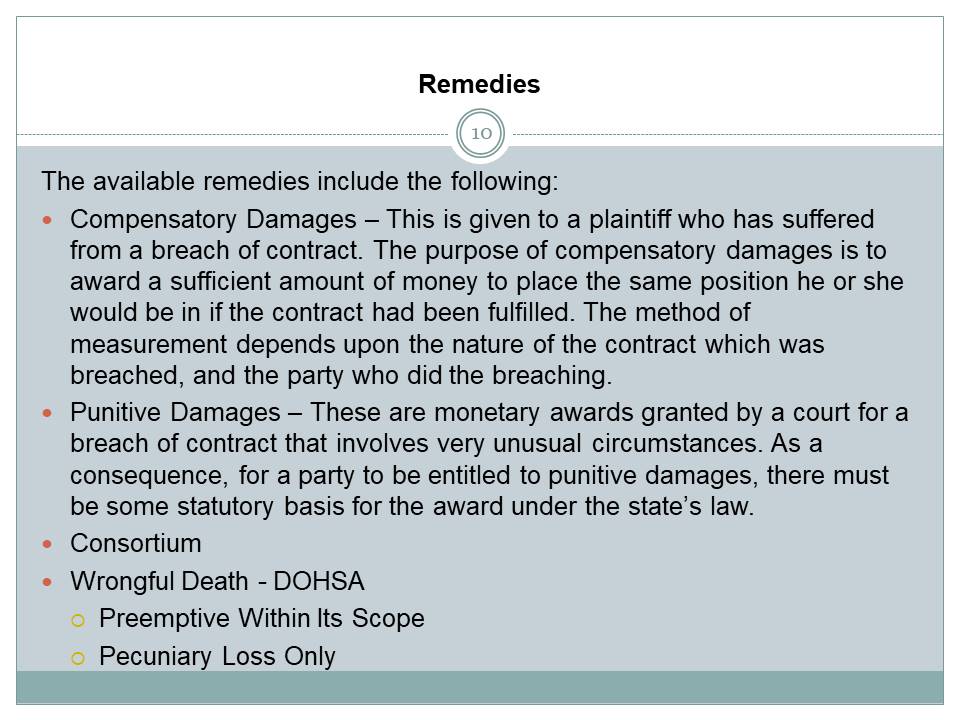The Cruise Experience – Entertainment with Risks
- The hotel staff sails alongside the passengers.
- As a result, the passengers travel in a controlled environment.
- Despite being in a controlled environment, passengers still get exposed to some risks. There are, however, accompanying benefits as well.
- Benefits:
- A full package consisting of entertainment, food, and lodging
- The vessel and its concessionaires
- Risks:
- There is a possibility that things may go wrong. This includes food poisoning, injuries or medical emergencies
- Legal risks may result from unfamiliar bodies of law, international nature of the industry, jurisdictional difficulties, venue, statute of limitations, and notice of claim
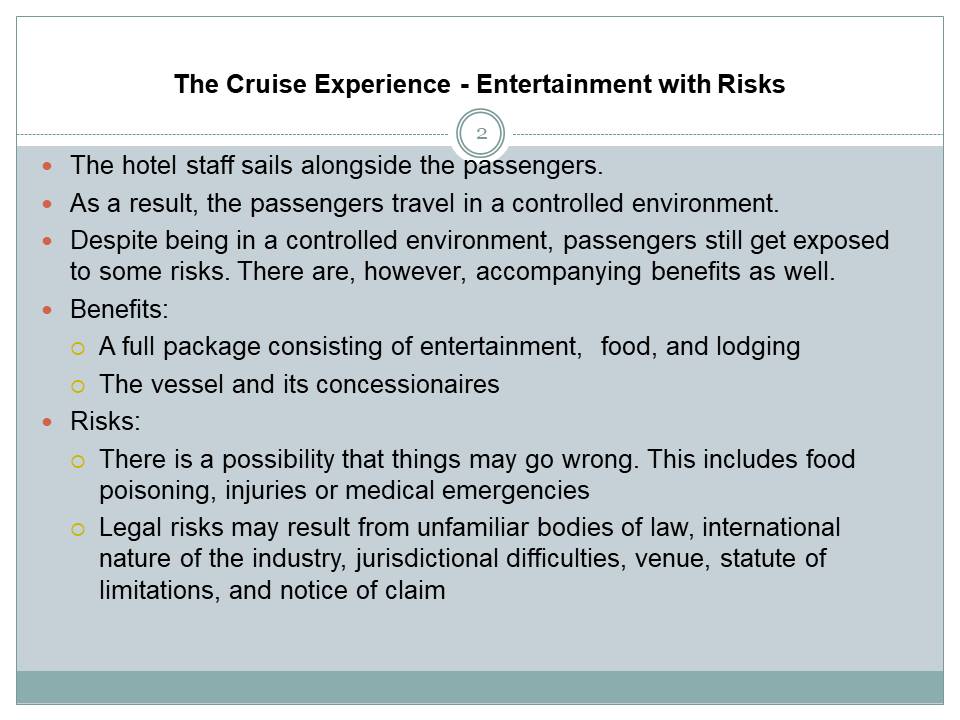
Jurisdiction, Venue and Choice of Law
Jurisdiction
- There are challenges associated with using foreign flag vessels
- There are also concerns regarding foreign companies, with foreign headquarters such as Costa
- There are also foreign companies, with headquarters in the US such as, Royal Caribbean, Carnival
- Although the principal place of business is in the United States, there are issues of diversity
- There is also admiralty jurisdiction
- There are also concerns of whether to use jury or non-jury approach to trials
Venue
- Principal Place of Business
- Forum Selection Ticket Clauses – Enforceable under Shute
- Federal Court Requirements
- Benefit – Certainty
- Burden – Need Local Counsel
Choice of Law
- Whether to use federal law in state courts – Keefe and Carlisle
- Whether to use state law in federal courts
- Concerns about diversity and lack of uniformity
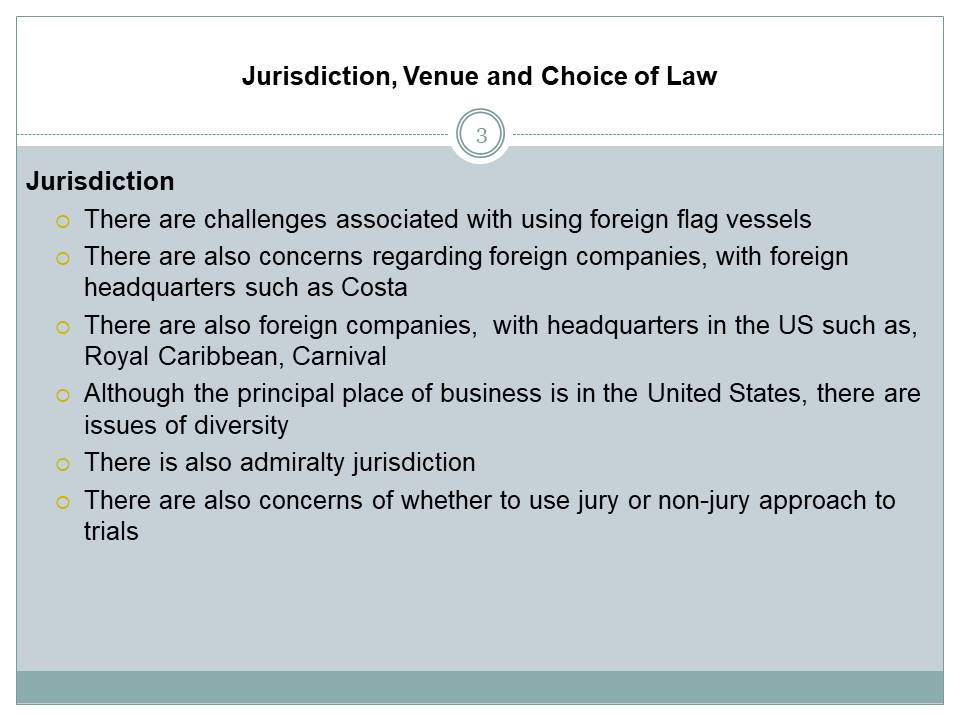
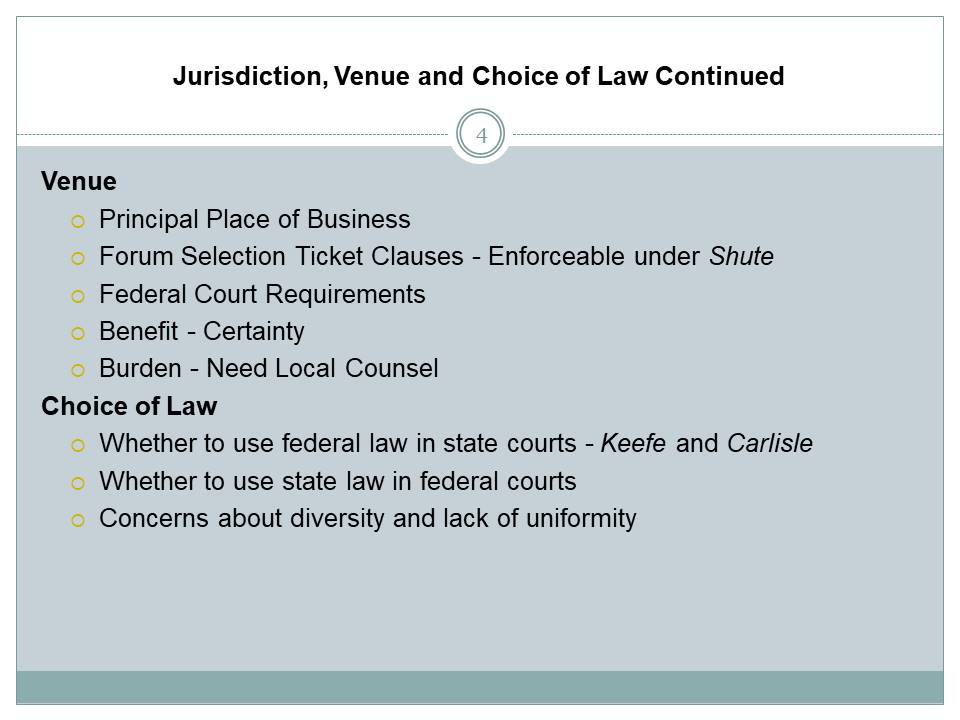
Limitations and Notice of Claim
- Limitations
- Statutory – Three Years – 46 U.S.C. §30106
- Contractual – One Year – 46 U.S.C. §30508 and Kornberg
- Equitable Tolling
- Written Notice of Claim takes up to Six Months
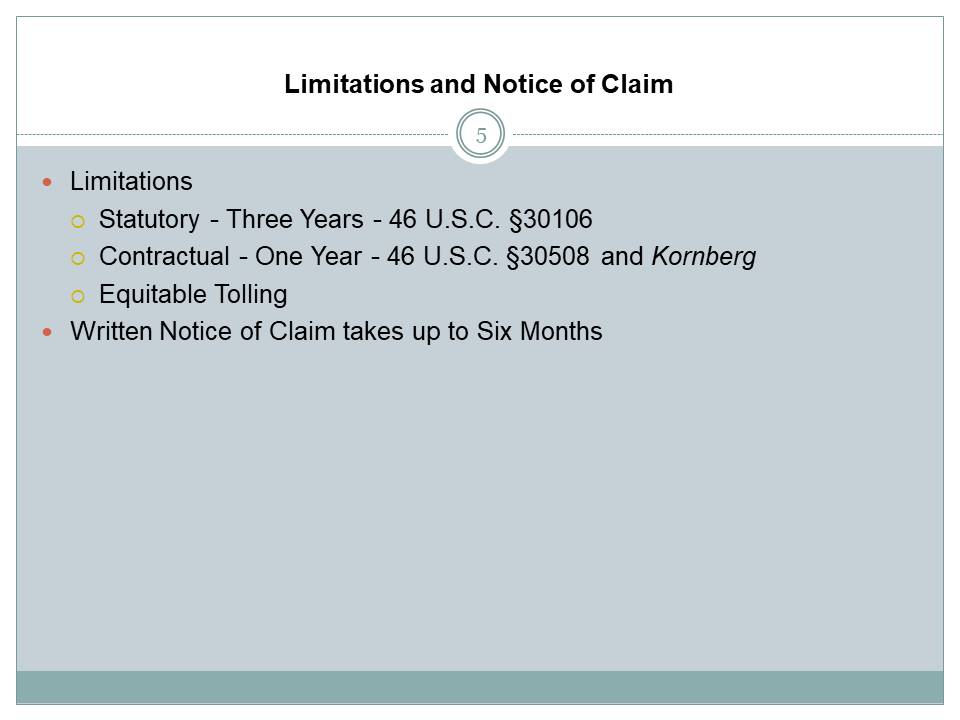
Liability
- General Maritime Law
- Reasonable Care Standard – Kermarec
- Failures of Reasonable Care –
- Food
- Navigation
- Slip and Fall
- Embarkation and Disembarkation
- Exceptions to Kermarec – Medical Care, Assaults, Concessions
- Anti-Limitation Statute – 46 U.S.C. §30509
- Athens Convention
- Strict Liability
- Severe Damage Caps
- Proposed Amendments
- United States Not a Party
- Anti-Limitation Statute – Not in Ticket Contracts
- Other Conventions
- SOLAS
- STCW
- ISM Code and 46 U.S.C. §§3201-05
- Safety Management Plans
- No Specifics
- Private right of action? Kyles v. federal courts
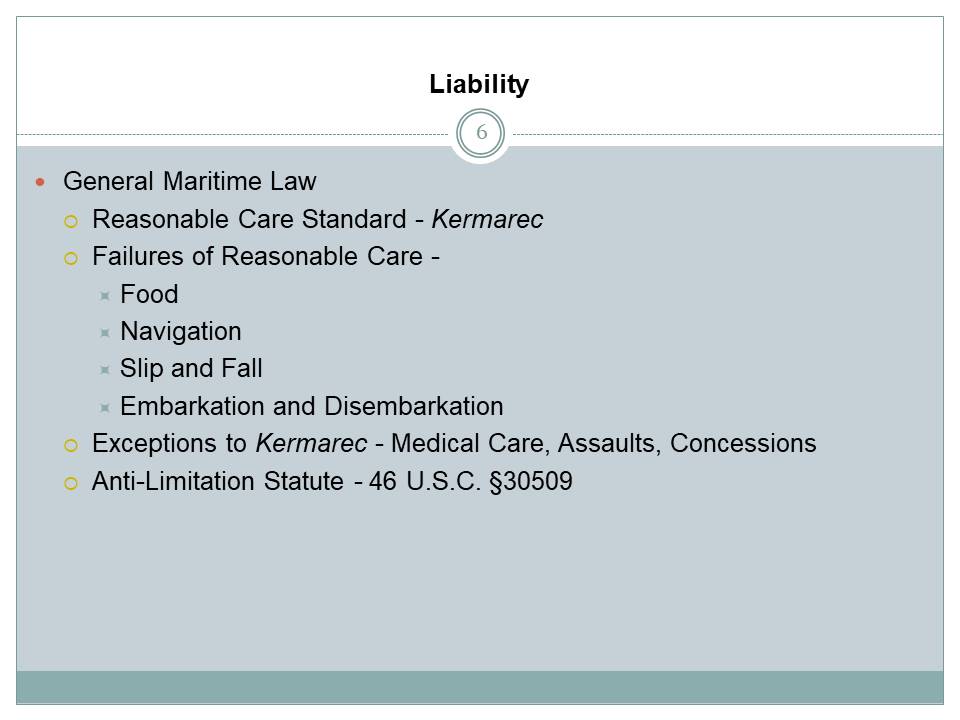
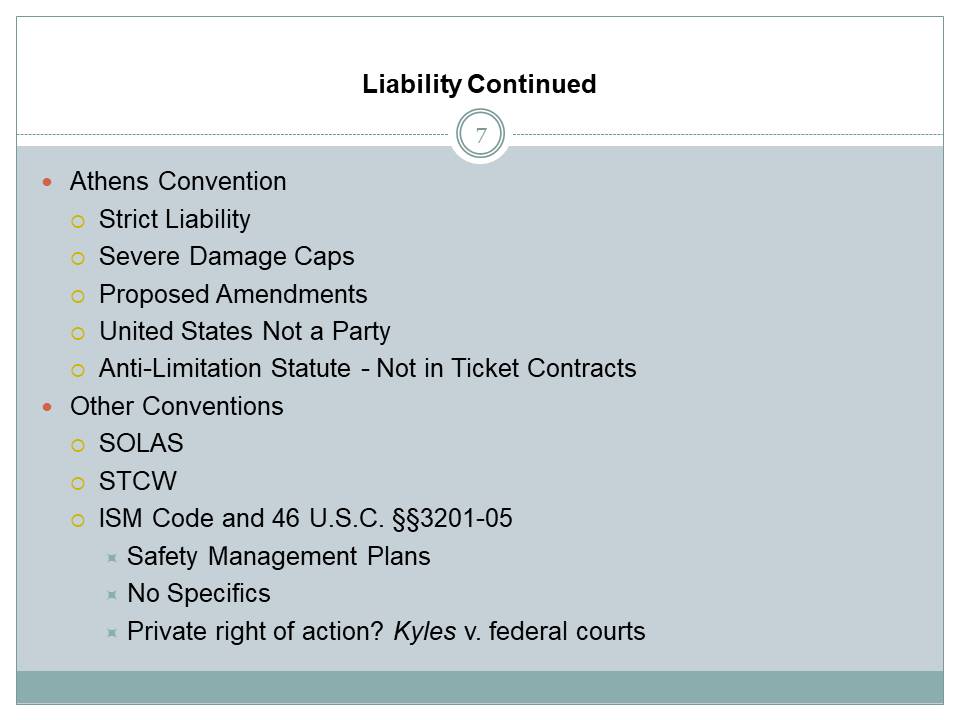
Onboard Medical Care
Barbetta – Limits on Liability for Onboard Medical Negligence
- No Duty to Provide Physician – “Lack of Control”
- Duty to Screen and Credential
- Duty of Aid and Assistance
- Southern District of Florida – Expansion of Barbetta
Criticisms of Barbetta – Limits on Liability for Onboard Medical Negligence
- Nietes
- Cruise Lines Need and Have Physicians
- Cruise Lines Have Sophisticated Medical Facilities
- ACEP Guidelines
- Telemedicine – Practical Control
- CVSSA Requires Qualified Physicians – There is no duty to provide Physician
Bypass Barbetta – Apparent Agency
- Strict Liability – Doe and Morton
- Second Circuit Minority View
- CVSSA – new regulation and reporting, but no private right of action
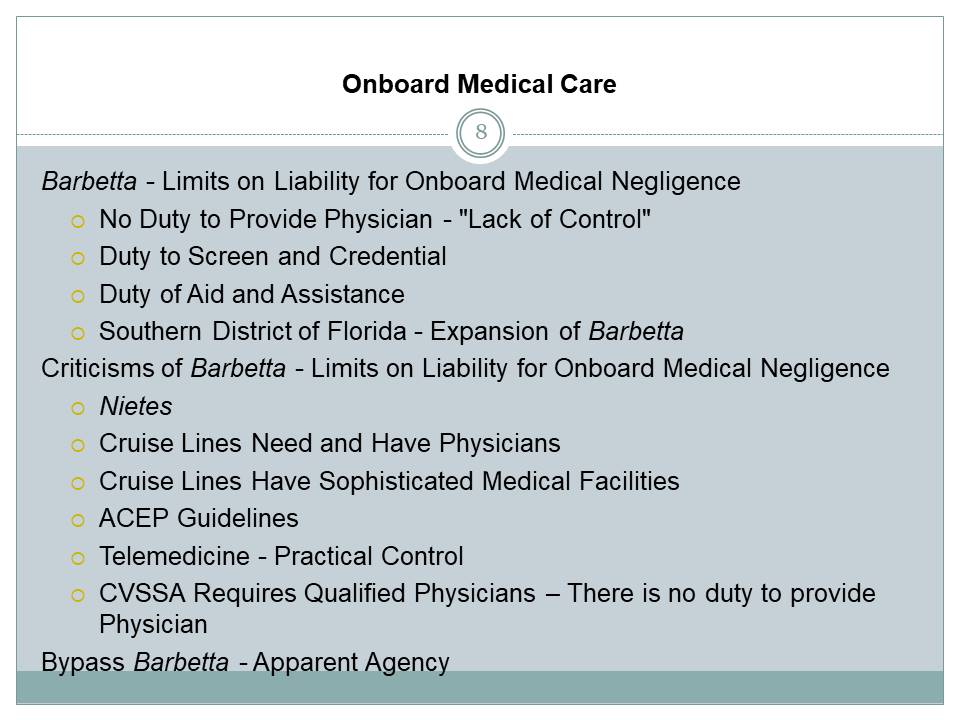
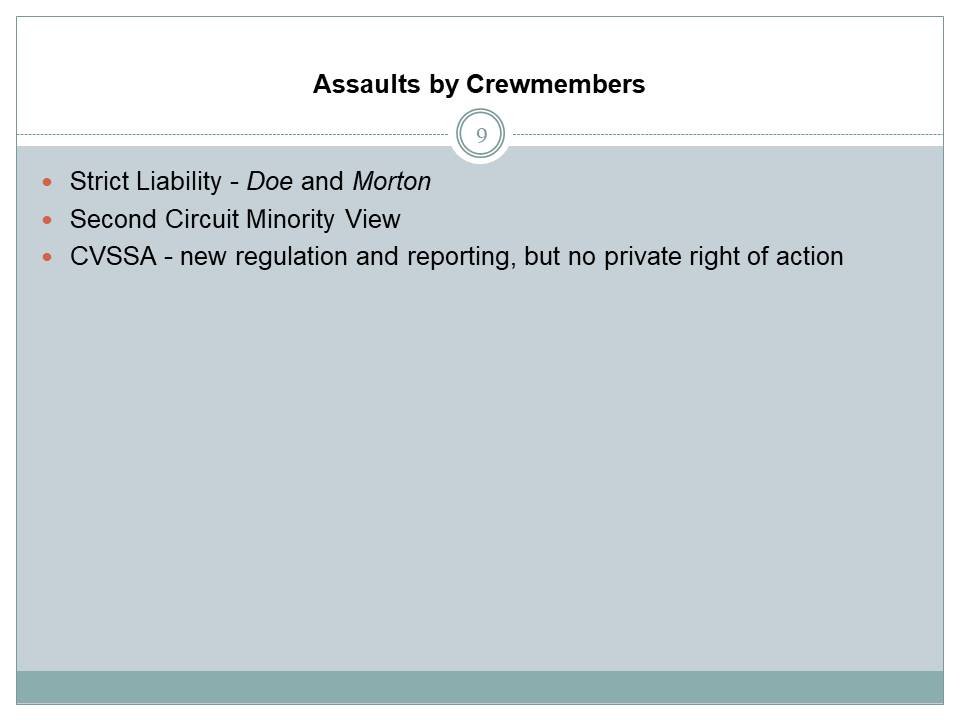
Remedies
The available remedies include the following:
- Compensatory Damages – This is given to a plaintiff who has suffered from a breach of contract. The purpose of compensatory damages is to award a sufficient amount of money to place the same position he or she would be in if the contract had been fulfilled. The method of measurement depends upon the nature of the contract which was breached, and the party who did the breaching.
- Punitive Damages – These are monetary awards granted by a court for a breach of contract that involves very unusual circumstances. As a consequence, for a party to be entitled to punitive damages, there must be some statutory basis for the award under the state’s law.
- Consortium
- Wrongful Death – DOHSA
- Preemptive Within Its Scope
- Pecuniary Loss Only
